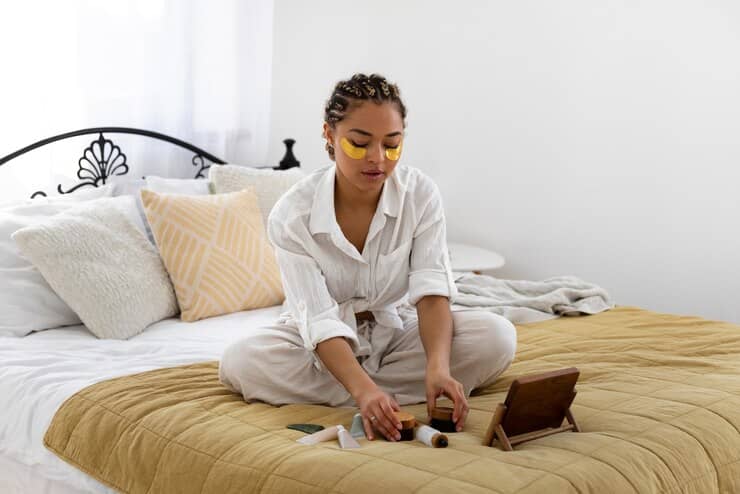Sleep statistics by Single Care show that the average person gets less than seven hours of sleep every night and 50 to 70 million adults in the U.S. are affected by a sleep disorder. In Africa, the statistics are much worse, where the daily hustle and bustle continues to push dwellers to get more restless. Yet, good sleep is not a luxury—it is a necessity. Getting a good night’s sleep is one of the most important things you can do for your health. During sleep, the body can rest and recover for a new day. Not getting enough sleep because of a sleep disorder can negatively impact your health, happiness, and longevity. As we step into a new year full of possibilities, prioritising sleep hygiene could be your ultimate superpower.
What Is Sleep Hygiene?
Sleep hygiene refers to the habits and practices that promote consistent, high-quality sleep. It involves everything from your bedtime routine and sleep environment to your daily habits and how they affect your ability to rest. They are healthy habits, behaviours, and environmental factors that can be adjusted to help you have a good night’s sleep.

Think of sleep hygiene as the blueprint for creating an environment and mindset that supports restful sleep. By following these principles, you not only fall asleep faster but also stay asleep longer, waking up refreshed and ready to tackle the day.
The Importance of Sleep
Enhances Physical Health

Good sleep is critical for the body’s repair processes. During deep sleep, your body regenerates tissues, builds bone and muscle, and strengthens the immune system. Chronic sleep deprivation, on the other hand, is linked to a host of health problems, including heart disease, diabetes, and obesity.
Boosts Mental Well-Being

Sleep directly affects cognitive functions like memory, concentration, and problem-solving. It’s also vital for emotional regulation. Poor sleep increases the risk of anxiety, depression, and stress, while quality rest helps maintain a balanced mood and sharp mind.
Improves Productivity and Immunity

When you’re well-rested, you perform better at work and school. Sleep also helps with creativity, decision-making, and the ability to focus – making it the best productivity hack. Research has shown that sleep strengthens the immune system, reducing the chances of illness and it helps the body fend off infections and recover faster when you’re sick.
Steps to Improve Your Sleep Hygiene
Create a Sleep Schedule

Go to bed and wake up simultaneously every day, even on weekends. A consistent schedule helps the body maintain the natural rhythm, making it easier to fall asleep and wake up naturally.
Design Your Sleep Environment

Make your bedroom a sleep sanctuary. Keep it dark, quiet, and cool. Invest in a comfortable mattress and pillows, and consider blackout curtains or a white noise machine if needed.
Limit Screen Time Before Bed

The blue light from phones, tablets, and computers can in most cases affect the production of melatonin, the hormone that regulates sleep. To help, make sure to disconnect from screens at least an hour before bedtime.
Develop a Relaxing Bedtime Routine

Wind down with calming activities such as reading, meditating, or taking a warm bath. These rituals signal to your body that it’s time to prepare for sleep.
Exercise Regularly

Engaging in physical activity during the day can promote better sleep at night. Just avoid intense workouts close to bedtime, as they can be stimulating
